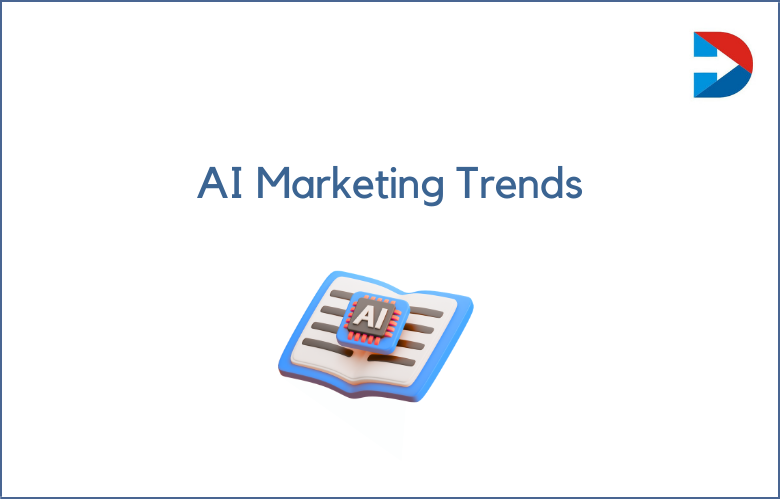
Do you agree that a ranked website is different from one that is not? After all, you publish your website to appear on the Search Engine Page Results (SERPs) front page.
But getting your website ranked on the front page is not easy.
It needs you to improve its technical aspects so that it becomes easy for the search engine bots to understand, navigate, and search the contents inside your website.
Here is where technical SEO plays an important role. This is a part of on-page SEO to improve elements on your website so that you rank higher.
What Is Technical SEO?
Technical SEO (Search Engine Optimization) refers to the technical aspects of improving a website through better indexing, page loading speed, hosting, content, and so on so that the technical health of your website improves, and it makes the task of the search engine bots easy.
This improves the overall ranking of your website in the SERP and keeps you ahead of your competitors.
How Can I Improve My Technical SEO?
To improve your technical SEO, you must perform a technical SEO audit before submitting the page to Google and having it indexed.
Prepare your SEO audit report with all the recommendations to improve the website ranking and start working on it with the help of some tools and the rest manually.
How to Do a Technical SEO Audit?
Prepare a technical SEO checklist of all the parameters you have to test.
Let it be your technical SEO 101 checklist. You have various tools to identify the challenges affecting your website ranking and ways to improve it. Here, we present to you the advanced technical SEO tools & insights-
Structured Data:
Structured data helps search engine bots know about your website’s contents. This makes your content eligible for the search results, and you will be awarded a higher ranking.
Schema is a standardized formatting rule that establishes data hierarchy. By marking contents on the page, the search engine finds it easy to discover links that match the search query organically.
Tools for a Structured Website:
Structured Data Testing Tool by Google:
It helps you find if your page uses structured data. You have to paste your website’s URL. It will check for the code and flag errors.
SEO SiteCheckup:
This tool checks for schema usage. It will check whether the structured data meets the specifications or not.
Page Loading Speed:
We all know nobody likes to wait for websites that take longer to load. This increases the chances of visitors bouncing the sites.
How Do You Increase Your Site Loading Speed?
- Check for minifying your scripts.
- Minimize the images
- Broken links are eliminated using redirects. However, too many redirects affect the loading speed. See to it that your redirects do not point to other redirect pages.
- Enable browser caching, especially when your website has many images to load.
- Remove any unwanted plug-ins that are causing load time issues
- Add CDN (Content Delivery Network). By this, you can serve your site from a location near your visitor rather than load it from a remote server in another part of the world.
- Once you get more traffic to your website, move from shared hosting to a dedicated server or VPS hosting.
- Some of the tools give suggestions to help you improve the website speed.
Tools for Speed Improvement:
Google Analytics:
In this, go for Behavior-> Site Speed-> Speed Suggestions. Google performs an internal technical SEO audit and provides you with recommendations to improve the page load speed.
Google PageSpeed Insights:
This tool grades your website from 1 to 100 to know if your site is better optimized.
Internal Links:
Internal linking helps to achieve higher ranking through efficient means of spreading ranking power among the pages.
- Your website’s essential pages should not exceed three clicks away from the homepage.
- There should not be any broken links.
- Ensure that your site is clean and secure from hacks and breaches.
- See to it that your orphan pages get linked to other site pages.
Tools to Fix Broken Links:
Google Analytics:
This free tool shows you the 404 error page or the broken link. Redirect the page and fix the broken link.
Broken Link Checker by SmallSEOTools:
Just paste your website URL on it, and it automatically checks all the linking pages of your website. It will help you find broken links, if any.
HTTPS Connection:
Since 2014, Google has been giving importance to websites with an HTTPS connection. This means that if your website is SSL certified, you have a better chance of ranking on the first page of SERP.
Responsive Website:
Google gives prominence to responsive websites. It now indexes the mobile version of the websites first. So, test your pages for mobile-friendliness.
Tools to check the mobile responsiveness of your website:
Responsive Design Checker:
This gives the option of checking the site responsiveness on various screen sizes.
Responsinator:
This tool will show you how your site page appears on different Apple and Android phones of various sizes.
Which Is the Best SEO Audit Tool?
The complete technical SEO audit process analyzes all the pages of your website. There are various tools to help you in technical SEO 2019 auditing.
Woorank:
It comprehensively analyzes broken links, backlinks, and on-page SEO and recommends improving the site’s visibility.
Raven tools:
It gives suggestions on the site page speed, design, backlinks, and social media reputation.
SEMRush:
This tracks the organic keywords, PPC keywords of competitors, and backlinks, and you can get a complete website SEO audit and position tracking.
Moz:
It offers free tools like Business Listing, Keyword Explorer, Open Site Explorer, etc.
SEO Site Checkup:
This analyzes the entire website regarding mobile usability, SEO issues, social media, servers, etc.
Conclusion
Having good technical SEO is not something that is a one-time process. It needs continuous monitoring and maintenance with regular audits. Then, you can not only rank high but also stay on top.
Call: +91 9848321284
Email: connect@kiranvoleti.com
Frequently Asked Questions (FAQs)
What is technical SEO?
Technical SEO refers to optimizing a website’s infrastructure to help search engines crawl, index, and render pages efficiently. It focuses on non-content elements like site speed, mobile-friendliness, and structured data.Why is technical SEO important?
Without strong technical foundations, even the best content may not rank well. Technical SEO ensures your site is accessible to search engines and provides a seamless user experience.What are the key components of technical SEO?
Key components include site speed, mobile optimization, XML sitemaps, robots.txt files, canonical tags, HTTPS security, structured data, and crawl error resolution.How does site speed affect SEO?
Page speed is a ranking factor for both desktop and mobile. Faster-loading pages improve user experience and reduce bounce rates, contributing to better rankings.What is an XML sitemap and why is it important?
An XML sitemap helps search engines discover and index your site’s pages efficiently, especially for large or complex websites.What is a robots.txt file?
The robots.txt file tells search engine crawlers which parts of your website should or shouldn’t be crawled, helping manage crawl budget and avoid indexing duplicate or sensitive content.How do I fix crawl errors in Google Search Console?
You can identify crawl errors under the “Pages” section in Search Console. Fix broken links, update redirect issues, and resolve server errors for better crawlability.What is a canonical tag and when should I use it?
A canonical tag signals the preferred version of a page when duplicate or similar content exists. It helps consolidate link equity and avoid duplicate content penalties.Why is HTTPS important for SEO?
Google considers HTTPS a ranking signal. It also provides users with secure connections and trust, which reduces bounce and increases conversions.What is mobile-first indexing?
Mobile-first indexing means Google predominantly uses the mobile version of your website for indexing and ranking. Responsive design is crucial for SEO success.What are structured data and schema markup?
Structured data, implemented via schema markup, helps search engines understand content context, enabling rich results like star ratings, FAQs, or product prices in search listings.How can I test if my website is mobile-friendly?
Use Google’s Mobile-Friendly Test tool or check your Core Web Vitals in Search Console to ensure mobile usability and performance.What are Core Web Vitals?
Core Web Vitals are a set of performance metrics—Largest Contentful Paint (LCP), First Input Delay (FID), and Cumulative Layout Shift (CLS)—used by Google to assess page experience.How do broken links affect technical SEO?
Broken internal or external links hurt user experience, waste crawl budget, and may negatively affect rankings. Regular link audits are essential.What is duplicate content and how can I avoid it?
Duplicate content refers to identical or substantially similar content across multiple URLs. Use canonical tags, 301 redirects, and URL parameter handling to address it.How do 301 and 302 redirects affect SEO?
301 redirects are permanent and pass most link equity; 302s are temporary. Misusing redirects can harm rankings and crawl efficiency.What tools help with technical SEO audits?
Tools like Screaming Frog, Semrush Site Audit, Ahrefs, Google Search Console, GTmetrix, and PageSpeed Insights are commonly used for in-depth technical analysis.How often should I conduct a technical SEO audit?
Regular audits are recommended quarterly or after major site updates, migrations, or algorithm changes to maintain SEO health.What is a crawl budget and why does it matter?
Crawl budget is the number of pages Googlebot crawls on your site during a session. Efficient internal linking and avoiding duplicate pages help manage it.Can technical SEO improve rankings alone?
While essential, technical SEO should be combined with quality content and backlinks for optimal search engine performance.



